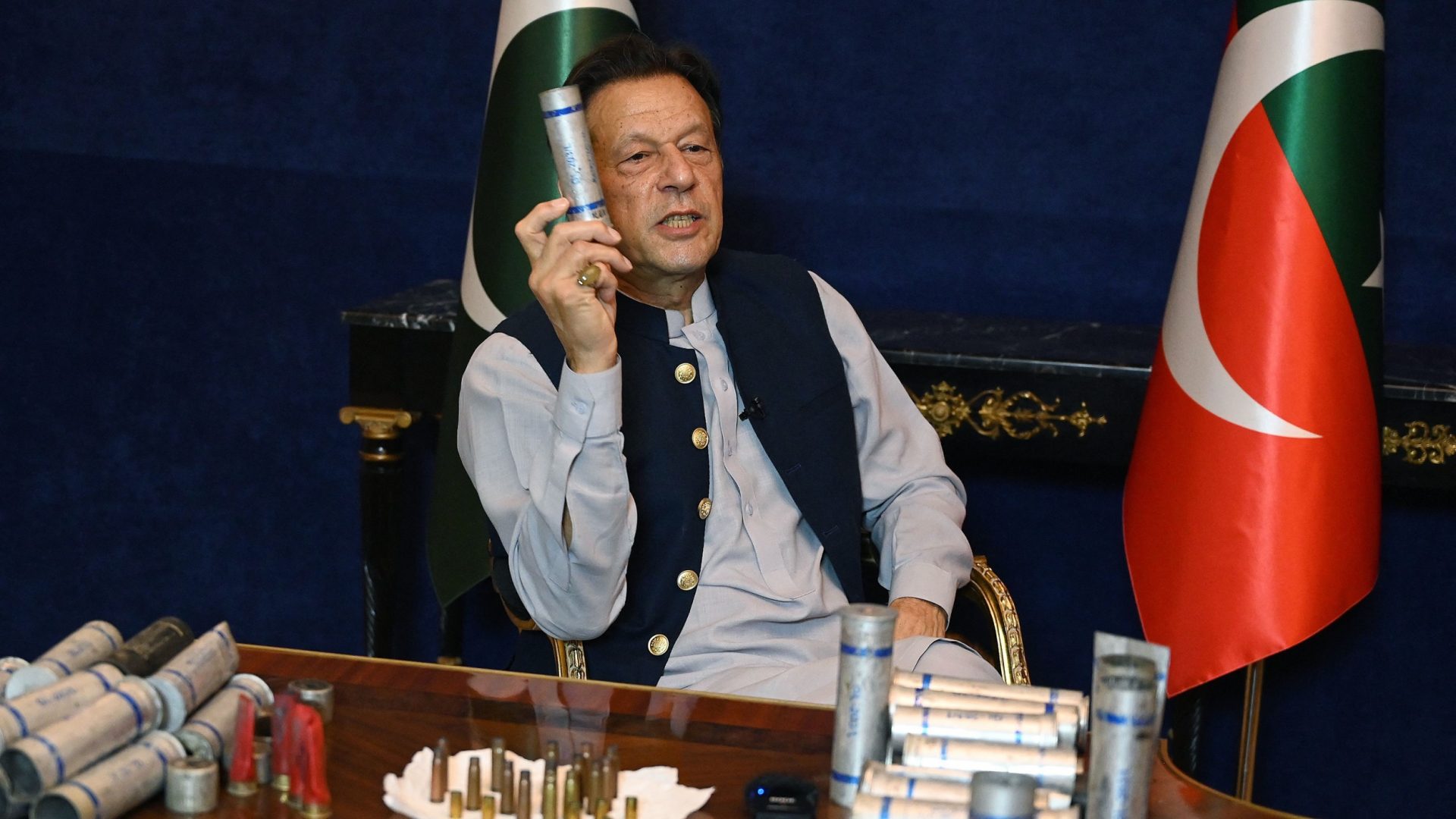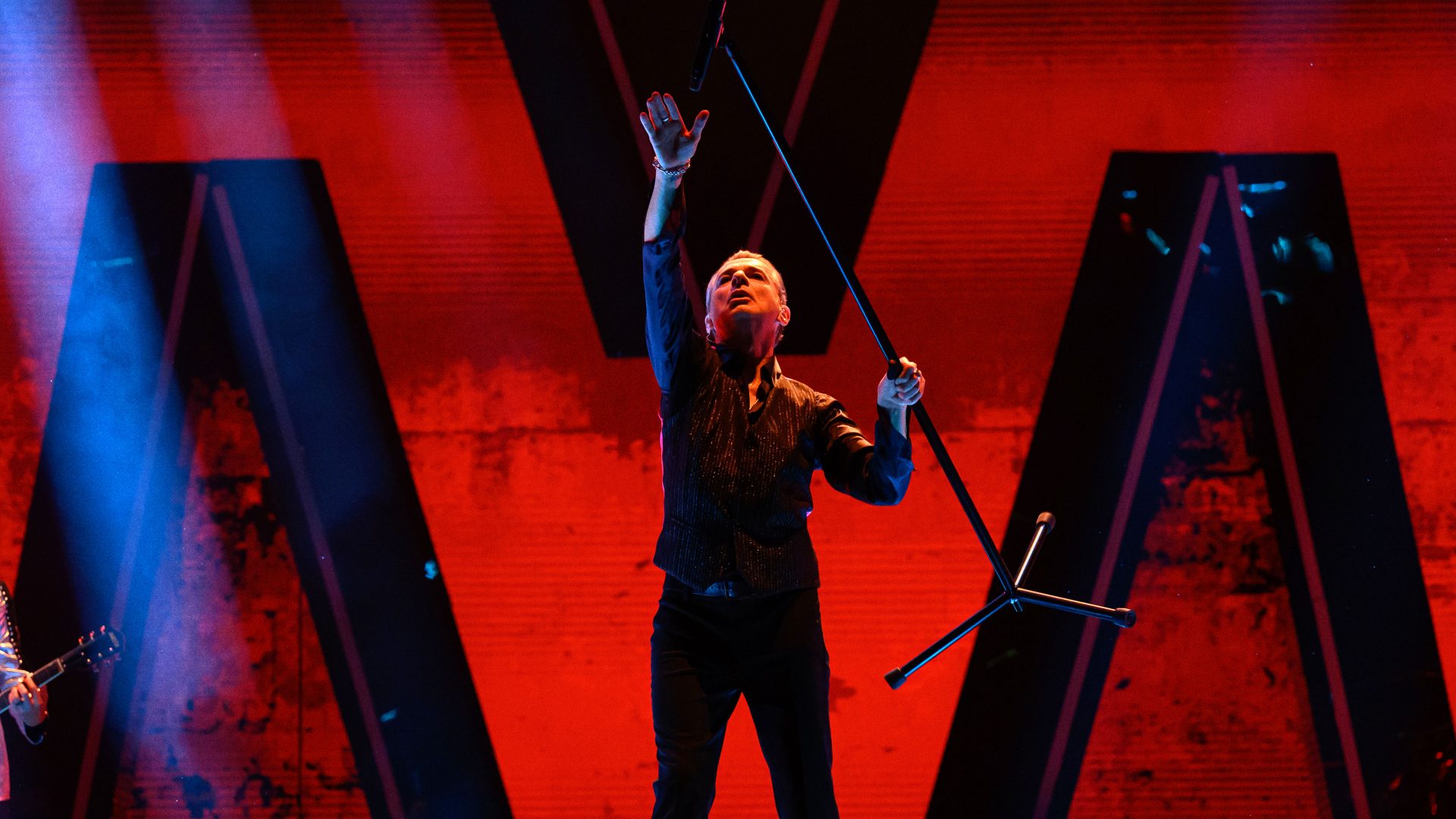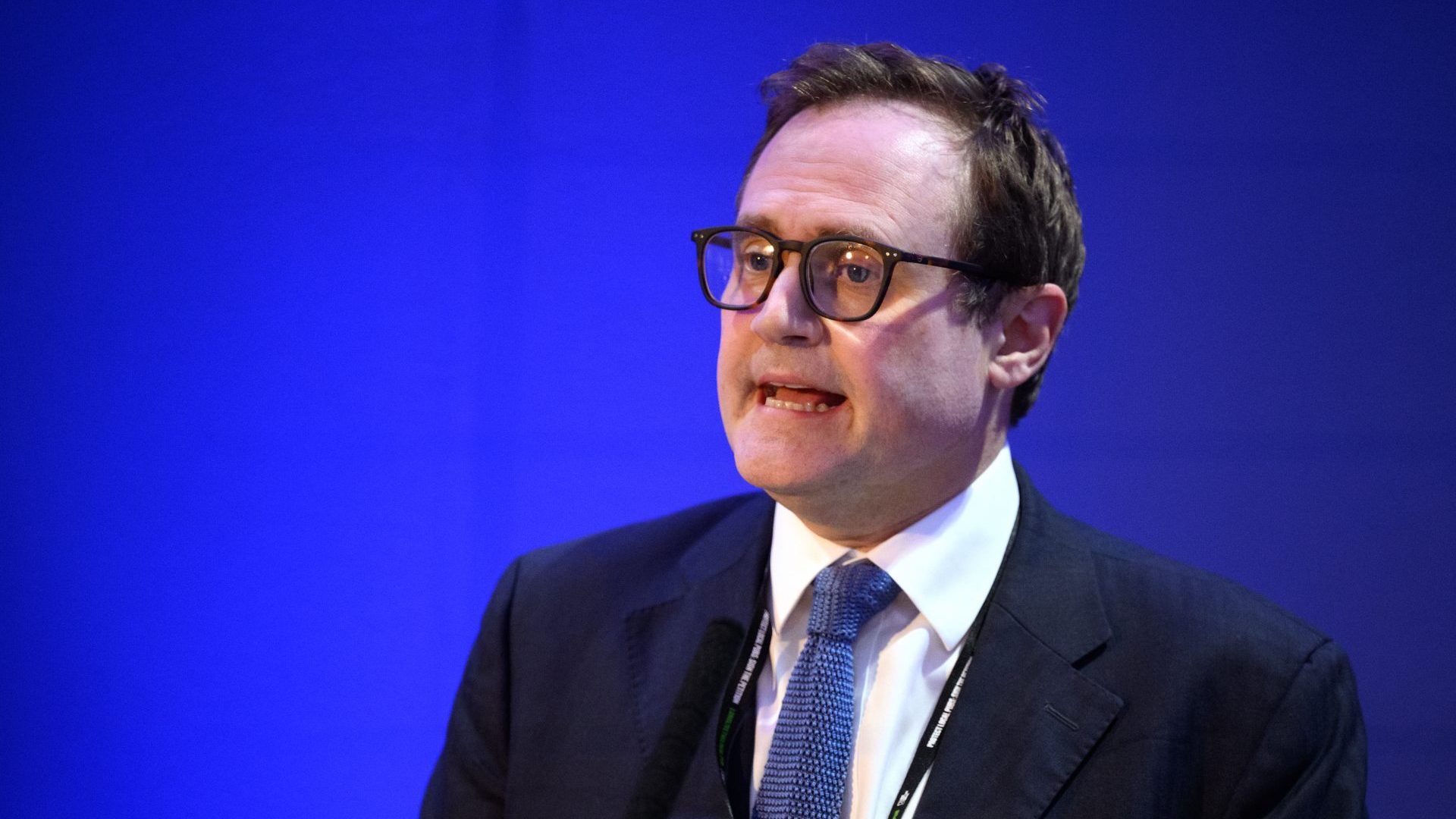In early May, Imran Khan was arrested in the Islamabad High Court on corruption charges. He has since been released. He is an unusual character. When I spoke to him late last year, he manoeuvred his Zimmer frame into view, hobbled around a huge desk at his political party’s headquarters in Islamabad, and dropped heavily into a chair, flanked by the flags of Pakistan and his own Pakistan Tehreek-e-Insaf, the “movement for justice”. He was still carrying a couple of bullets in his leg after an assassination attempt, and looked tired and, if I’m honest, a little frail, too.
He and I were 5,000 miles apart, on a video call between Islamabad and London, part of his international media blitz after the shooting on a highway outside Lahore. He was loquacious, polite and gracious, used my name often and didn’t seem to have it written on the back of his hand.
We spoke for an hour. He was certain that his opponents had tried to kill him; that the military and its secret service were too powerful; and that he was the best man for the top job even though he was sacked by parliament before his first and only term was up.
All this was done with great warmth and butter-wouldn’t-melt-in-his-mouth charm. But when I was checking back through my recording and notes of the hour we spent together, there was little that I could use.
His facts and figures just didn’t add up. It was as if he’d pulled them from thin air. He denied having said things he’s on the record as saying. He insisted his comments had been misconstrued or taken out of context – like his support for the Taliban’s victory in Afghanistan in August 2021; or that educating girls isn’t really part of that country’s culture; or that economic growth under his leadership was in double digits. He obfuscated and backtracked, over-elaborated, fudged, misremembered and just plain got it wrong. The subsequent article was much shorter than I’d planned. Thank goodness I’m not paid by the word.
Imran Khan is a populist – he will do and say whatever it takes to make people love him. People like this – Donald Trump, Boris Johnson, Jair Bolsonaro, Viktor Orbán, Narendra Modi – are divisive and anti-democratic. They hate media scrutiny and treat journalists like the enemy – until they need the oxygen of publicity.
Since setting up his PTI party in 1996, Khan has become Pakistan’s towering political troublemaker. He was happy to have the military’s support to bring him to power in 2018, but was soon trying to diminish the army’s influence. He promised to create a welfare state, tackle corruption, reform state bureaucracy and level the playing field. None of it worked.
Amid the political gridlock he has caused since parliament’s no-confidence vote last April, inflation has soared and the currency has plummeted. Poverty is rising and the middle classes are feeling its pull. Among my friends in Pakistan, some are going off-grid, installing solar panels and turning their small gardens into vegetable patches and chicken coops to make sure they can keep the lights on and their children fed.
At a think tank event in London this month, three people described Khan to me as a “cult”. He is charismatic, unlike the incumbent administration, which is a collection of dynastic names who believe power is their birthright. If it doesn’t work out, they can simply fly back to their family mansions in Kensington or Dubai or wherever. Right now, Khan is the only alternative, and it’s likely that if elections were held tomorrow – or even in September, when they’re due – he’d emerge the winner, probably by a landslide. Whether he’d be able to fix the country is a moot point.
An international playboy who captained the Pakistan cricket team to World Cup victory, who married the gorgeous daughter of a British billionaire, and put his efforts into building a research hospital in Pakistan after his mother died of cancer; Khan could have stopped there, and his legend would have been secure. But adulation is a tough drug to give up. And power, it seems, is just an impossible habit to kick.



